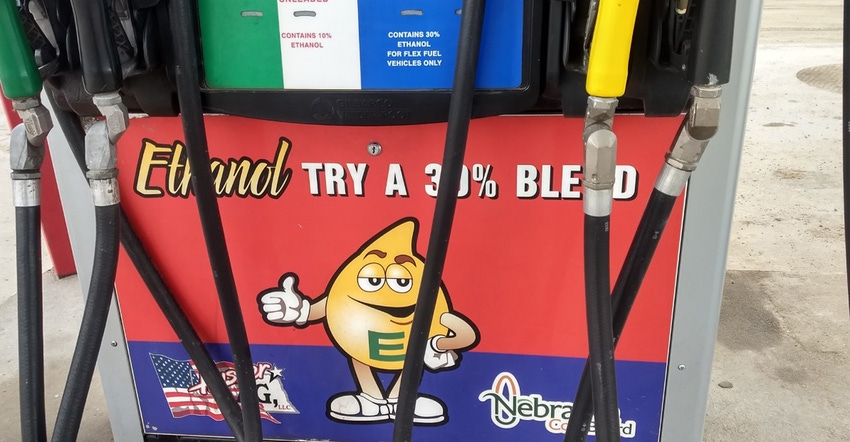
We know that E10, ethanol-blended fuel composed of 10% ethanol and 90% gasoline, makes up about 98% of all gasoline sold in the U.S.
E10 is approved by EPA for use in any conventional, gas-powered vehicle.
But as current regulations state, higher blends of ethanol gasoline, such as E30 — which contains 30% ethanol — are only approved for use in flex fuel vehicles. Conventional wisdom would have us believe that only lower blends, such as E10 and E15, are suitable for non-flex fuel vehicles.
But Nebraska is challenging that conventional wisdom, and the state’s partner in the challenge is EPA.
Nebraska Ethanol Board Administrator Roger Berry spoke at the Nebraska Farmers Union state convention in Norfolk in December, explaining the premise of a new state fleet study that is looking at using E30-blended gasoline in state non-flex fuel vehicles, with the blessing of EPA.
“We continue to fight for ethanol with all our might,” Berry said. “We want to preserve ethanol for better grain markets.”
The Nebraska E30 demonstration project was established by former NEB Administrator Todd Sneller. The purpose of the study is to collect data to statistically determine the long-term effects of E30 use on modern non-flex fuel vehicles, Berry said.
“We also want to check the economic viability from smaller demonstrations that have already indicated positive results,” he added.
One of the earlier demonstrations took place in Watertown, S.D. Glacial Lakes Energy LLC partnered with Andy Wicks, a Watertown native who founded DynoTune Speed and Performance, a business that specializes in enhancing high-performance, fuel-injected vehicles.
In that study, 40 different vehicles ranging in age from a 2003 Chevy Silverado to a 2016 Lincoln Navigator used more than 1 million gallons of E30 sold in Watertown since May 2016.
Through more than 80,000 test miles and 20 million consumer miles driven, on average, the vehicles increased fuel mileage, increased horsepower, saved fuel and had no check engine lights or mechanical issues.
When tested on three full-size pickups, Wicks verified a 30-plus-hp advantage over regular 87 octane gasoline as measured on a rear-wheel chassis dynamometer.
The Nebraska pilot ethanol study, approved by EPA in September 2018, builds on this early research, partnering with EPA in order to verify the results with U.S. federal officials.
The program will evaluate the use of E30 in conventional vehicles in the state fleet, including Nebraska State Patrol cars, and compare the results to the same type of vehicles operating on E10 and E15 blends.
University of Nebraska-Lincoln engineers are providing technical assistance, helping researchers assess fuel cost per mile, performance, maintenance and other factors in 50 state vehicles.
“We are particularly excited about the State Patrol vehicles in the study, because those cars get driven hard,” Berry said. “As part of the study, we are matching vehicles up and comparing the results from the different fuel blends.”
Because the study has the blessing of EPA, the eyes of EPA are on the results, Berry said. “That’s what makes this study different from previous studies that are similar, and that’s why we are going about this in the way that we are,” he explained. “We are hopeful that other states will replicate this same process.”
Right now, plans are to conclude the study in June, but it could be extended into another year, Berry said.
“Qualified people are doing the data tracking and analysis,” he explained. “We want to make sure the study is being conducted by UNL engineers in charge of the project. They will be compiling data and putting a report together.”
Learn more about this study by emailing Berry at [email protected].
About the Author(s)
You May Also Like






